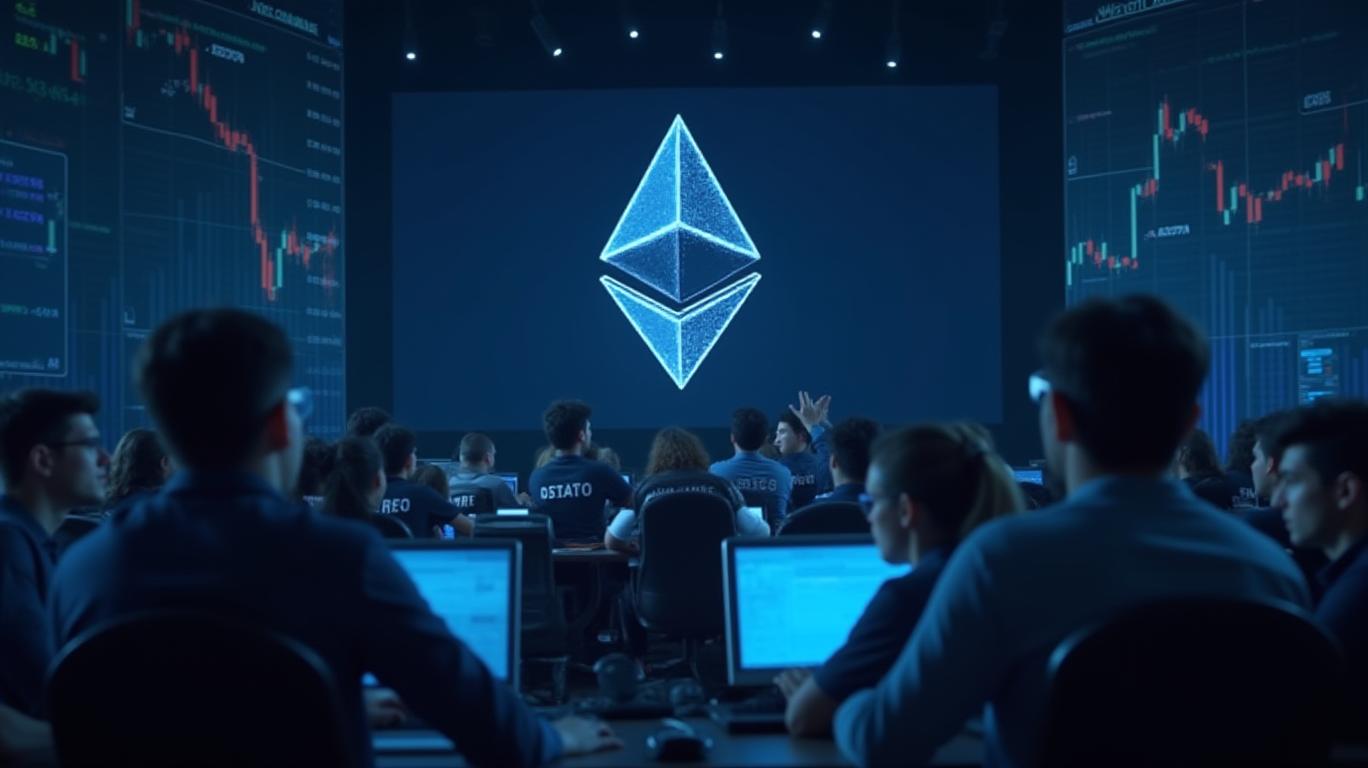Ethereum's Market Cap Surpasses Toyota, Despite 57% Ether Drop
Ethereum's native cryptocurrency, Ether, is currently trading at approximately $2,088, marking a significant decline of over 57% from its peak of nearly $4,900 reached in mid-November 2021. Despite this substantial drop, the Ethereum network maintains an impressive market capitalization of nearly $252 billion. This valuation places Ethereum ahead of several prominent global corporations, including ToyotaTM--, which has a market capitalization of $250 billion, and the precious metal platinum, valued at $245 billion. Other notable companies that fall short of Ethereum's market capitalization include IBMIBM--, McDonald’sMCD--, General ElectricGM--, Shell, and Disney. If Ethereum were considered a company, it would rank as the fiftieth largest in the world, just behind Nestlé, which has a market capitalization of nearly $256 billion.
Alex Obchakevich, founder of Obchakevich Research, attributes Ethereum's high valuation to speculative interest and its independence from traditional financial frameworks. He believes that Ethereum's appeal lies in its representation of future financial technologies and solutions, attracting young investors willing to take risks. Flavio Bianchi, a Polkadot ambassador and the chief marketing officer of the decentralized fundraising platform Polimec, offers a different perspective. He argues that Ethereum is not a business but infrastructure, deriving its value from usage and belief in its future role. Bianchi explains that Ethereum enables people to build, transact, issue assets, and coordinate without intermediaries.
Obchakevich also notes that Ethereum's transition to proof-of-stake (PoS) has enhanced its attractiveness as a deflationary asset with growth potential in the digital economy. However, recent data from Ultra Sound Money indicates that Ethereum is currently inflationary, with an annual inflation rate of about 0.73% over the past 30 days. The rate of inflation or deflation depends on the ETH fees burned by the network and the amount of newly issued Ether. Since the implementation of EIP-1559 in 2021, fees have been burned on the network, and decreased issuance after the PoS transition has resulted in Ethereum being deflationary during sustained network activity.
On March 23, daily fees on Ethereum fell to a little over $337,000, the lowest value reported since June 2020. This decrease in fees has led to a reduction in the network's deflationary pressure. Over the past 24 hours, ETH’s value rose nearly 3.5%, increasing its market capitalization by about $9.3 billion, now totaling approximately $252.1 billion. This figure exceeds Greece’s gross domestic product (GDP), currently around $243.5 billion. Obchakevich highlights that Ethereum’s market cap is also higher than the GDP of countries such as Slovenia and Croatia combined, signaling legitimacy to institutional investors. He views Ethereum as valuable for smart contracts and decentralized finance (DeFi), which has a total value locked (TVL) of over $124 billion.
Pradeep Singh, CEO of enterprise privacy and security infrastructure firm Gateway FM, interprets these numbers as a fundamental shift in how digital infrastructure is valued. He suggests that significant portions of the global economy will eventually migrate to this infrastructure, with Ethereum's market capitalization pricing in its future role as the settlement layer for various sectors, including financial services and supply chain management. The Ethereum protocol continues to evolve with innovations such as native rollups, further expanding the blockchain’s capabilities and potential use cases.

Quickly understand the history and background of various well-known coins
Latest Articles
Stay ahead of the market.
Get curated U.S. market news, insights and key dates delivered to your inbox.

Comments
No comments yet